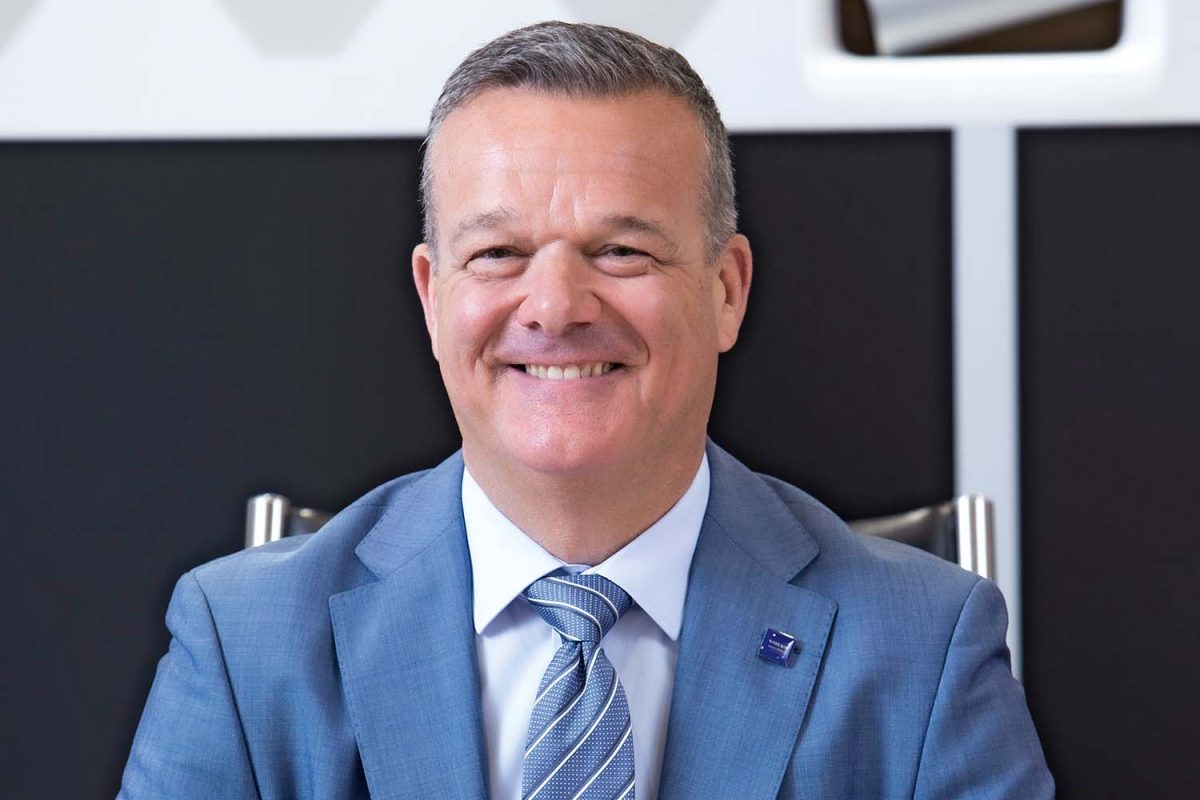Driving the value chain: Martin Merrick
President and CEO of Volvo Group Australia Martin Merrick is driving the company over coronavirus speed bumps to a future based on solid relationships.
Two years in Australia as President and CEO of Volvo Group Australia has not diluted Martin Merrick’s rich Scots brogue. The leader has been in the vehicle industry for over 40 years, starting as an apprentice truck mechanic. For the past 32 years, Martin has "grown up in the Volvo Group business".

He progressed from mechanic to service adviser, truck sales and then into retail management, culminating in being responsible for looking after Volvo Group’s Northern England and Scotland dealerships.
After years with the company in Britain, he spent time at the Volvo headquarters in Sweden before coming to Australia in 2018. The local market stands out as unique for Volvo, according to Martin.
"We build Volvo trucks here that we just don’t see anywhere else in the world," he says. "The Australian conditions – the distances travelled, the weight carried, the temperatures the vehicles need to work in and the diverse environment – really make it important that we understand our customers."
We have the complete local value chain here, from the sales organisation to the engineers and the production team. The full value chain here means that we build trucks for Australians, by Australians, to meet the demands of the environment, and that has proved to be hugely successful.
As a group, we have 51% of the market here. But it’s very demanding and challenging to maintain a profitable presence here, as it’s a reasonably small market. I would say that one of the key factors, having a local value chain, is a business model that works for Australia."
This year the COVID-19 pandemic has thrown a large spanner in the company’s operations, as it has for every business. Martin is fortunate to be able to call on previous experience in similar circumstances, so he was prepared for what was to come. "The 2008–09 global financial crisis was a learning experience. That was my first appointment as a managing director," he recalls.
"In July 2008, I got my dream job and then, within six months, the plan changed dramatically. So it was a steep learning curve," Coming to Australia, in a market that has not experienced a recession for over 28 years, what he witnessed in the UK helped him to prepare for what was to come.
"The transport industry always has a slow recovery after a recession," he says. "But with the right mindset, we took the right actions at the right time and acted swiftly, and we’re in good shape. We’re still going through some challenging times but, so far, what we’ve had to do has served us well."
In parallel with that, Volvo’s rock-solid partnerships have ensured that minimal disruption occurs. "Strong relationships are what our business is built on," Martin says.
"Our parts and service business is very focused on keeping vehicles on the road and maximising uptime for our customers. We’ve had a clear visionary strategy and philosophy on leadership and business values that have guided us through this pandemic. We’re not perfect, but we strive for progress, and we’ve seen a real shift towards value-based leadership. I would say that the pandemic has helped us accelerate our philosophy of leadership development, style and culture.
"We look at key touch points with our customers and even customers’ customers, and digitise as much as possible. Our digital and IT team got together with the commercial sales and dealership teams and created a tool that removed old ways of working in two weeks – it would normally take 12 months. This is a real example of innovation and digital transformation that added value immediately and reduced the time to market dramatically. To create what they did in that short space of time really was, I would say, hyper-collaboration."
Volvo has made significant investments in automation, connectivity and e-mobility and, at some time in the future, will introduce the first Volvo electric vehicles into Australia. With Australia’s extremes in distance and temperatures, Martin doesn’t see e-mobility as a total solution, but rather a balance of solutions.
"We can see electric vehicles working in metropolitan areas," he says. "We have hybrid buses in Perth and, at the end of next year into 2022, we will also have the first full electric buses running in Perth.
"So in metropolitan areas, electric vehicles will work, and where we have long distances and heavy loads, we see the internal combustion engine still playing a part for years to come; however, hydrogen fuel cell technology will also have a part to play in this field as well. There’s no single solution; there will be alternative solutions to satisfy the diverse nature of our industry in Australia."
Over the years, Martin has mentored many young people and points out that if new recruits exhibit the right attitude, are willing and committed, Volvo will invest in them.
"Volvo Group has invested in me; they supported me with my MBA through the years," he says. "If you commit and you want to develop, you get that opportunity within the Volvo Group with our intern and mentoring programs."
After all these years, Martin is still open to good advice. He recalls a new recruit who, after observing him for some time, gave him a book by Marshall Goldsmith called What Got You Here Won’t Get You There.
"I read the book. I couldn’t put it down and I realised I had to change some leadership behaviours," he says. "I have to say that really has served me well in my career."